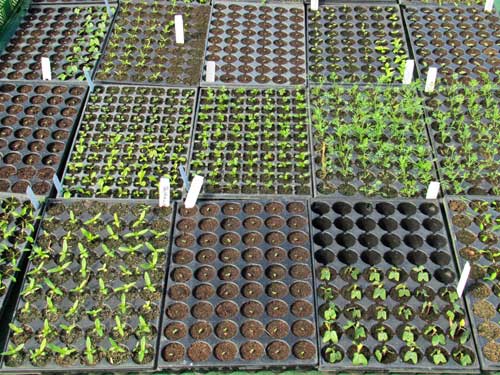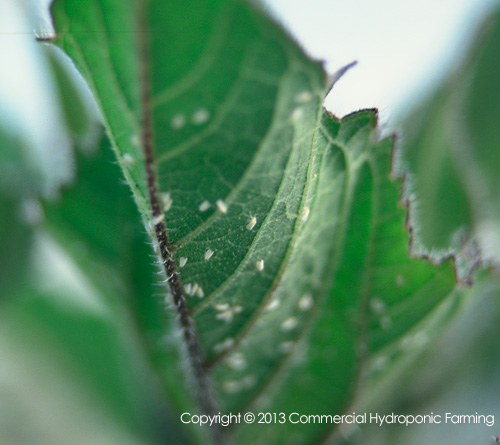Protect your seedlings from extreme temperatures
Seedlings must be protected from extreme temperatures. Climates that vary from very cold to very hot and also from very dry to waterlogged conditions are detrimental to seedling production. The table below provides a quick summary of the effect of extreme temperature conditions on seedling production.
Any stress a seedling undergoes will have a cumulative effect on its growth later in the season which you will never get back. Cold stress means slower growth. It does provide a hardier seedling, but it’s not always to the growers advantage in greenhouses. One or two days cold stress can mean 1-2 weeks delayed harvest and if early entry in the market is important it means a loss of income.
Low temperatures and wind combined are deadly. Forgetting to close side ventilation flaps can result in a large percentage of seedlings under stress. The most reliable indication of seedlings under stress is the buildup of anthocyanin on the leaf veins. A purple discolouration means stress has already occurred. Increasing the temperature and the purple colour will go away after a couple of days.
The effect of various extreme climates on the growth and symptoms on seedlings in a nursery that is not adequately protected from the environment| Climate | Effect on seedlings |
|---|---|
| Low rainfall and low temperatures: | Reduced growth |
| Small plants | |
| Lower yields | |
| High mortality | |
| Late flowering | |
| Low rainfall and high temperatures | Small leaves |
| High mortality | |
| Lower yields | |
| Diseases | |
| Few flowers | |
| High rainfall and low temperatures | Water logging |
| Disease (Botrytis) | |
| Slow growth | |
| Possible nutrient deficiencies | |
| High rainfall and high temperatures | High water requirements |
| Diseases | |
| Sun burn on leaves | |
| Leaf necrosis | |
| Seedling grow fast | |
| Spindly seedlings |
Some solutions to extreme conditions for better seedling production are:
- Seedlings are sensitive to high sun radiation. Use a high percentage shade cloth (at least 50% white) or transparent plastic.
- Prolonged shading may result in spindly and weak seedlings, many of which may eventually die. Be careful of old tunnel plastic which has low transparency factor.
- In autumn and early spring use plastic at night to cover the seedlings. Remove the plastic as soon as the sun comes up and temperatures increases.
- Use a south facing hill for seedling propagation during the summer and a north facing hill for seedling propagation during the winter. However, this is impractical with large nurseries. If however a small nursery is used this simple method can produce very good results.
Share This Story, Choose Your Platform!
Cotton aphid – Aphis gossypii
Cotton Aphid, or Aphis gossypii, is one of the more common insect pests found in almost all vegetable crops and [...]
Greenhouse white fly
Description Greenhouse white fly, also known as Trialeurodes vaporariorum is a sap feeder. The easiest way to find white flies [...]








